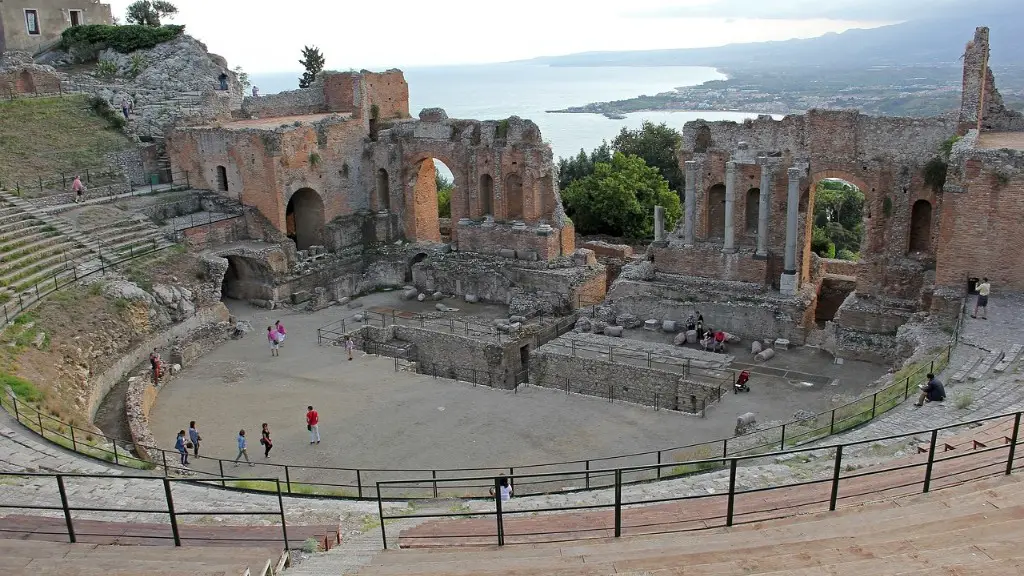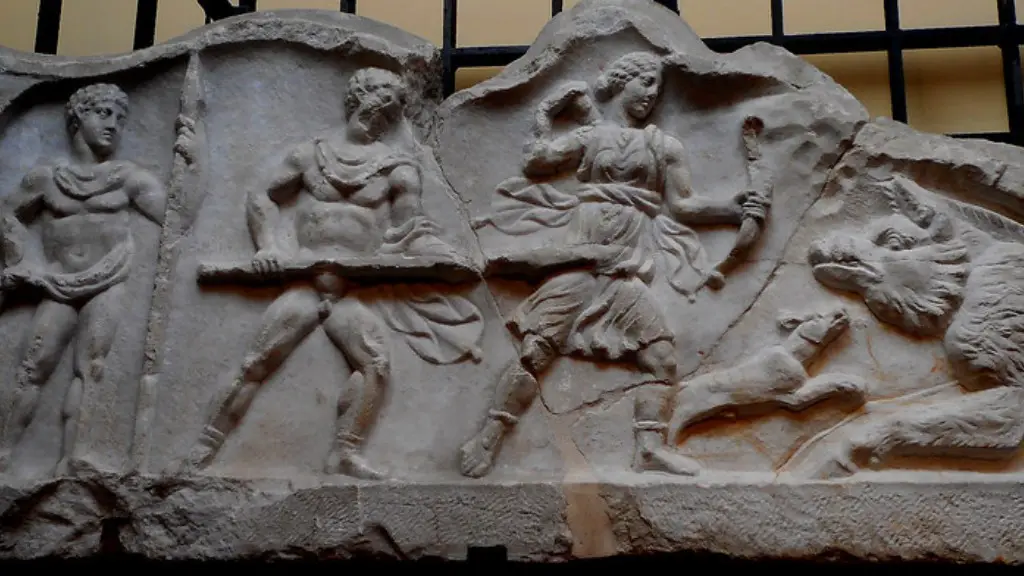Horace was an ancient Roman poet and satirist who lived from 65-8 BCE. He was the son of a freed slave, making him one of the only members of the lower class to be allowed to study Greek, poetry and philosophy at Rome’s elite Academia. Horace’s work is best known for its wit and intelligence as well as its criticism of Roman society’s mores and customs. He wrote in many different forms and genres, from satire and epigrams to lyric and epic poetry. He is widely lauded as one of the greatest literary figures of the Roman Empire and one of the most influential figures in Western literature.
Horace’s major works include the Satires, written in dactylic hexameter – a form which he revived – as well as the Odes and Carmen Saeculare, two books of lyrics written in various styles. He was also one of the first to employ the Latin language to write in a non-classical style. He used common language to express topics of philosophical, social, and political importance, making his works more accessible to the wider population.
Horace was also a proponent of Epicureanism, a school of thought that emphasised the virtue of living in moderation and maintaining a harmonious relationship with nature and the gods. While he wrote extensively of odes and satires ridiculing certain customs, Horace also believed that these customs must be accepted as they were. This philosophical stance can be read in many of his works.
Horace remained influential long after his death. His works had a profound influence on the Latin language and were revived by remembered by writers such as Dante, Francis Bacon and Thomas Gray. Furthermore, his works were translated into various languages and remained popular throughout the Middle Ages and Renaissance.
Horace’s style of writing still stands as a model for modern poets. His originality and intelligence are praised by many to this day, and he serves as one of the most influential writers in the ancient Roman world. He is responsible for blending highbrow Latin and the spoken Roman language and for his vivid portrayal of Roman society, commanding the respect of both his contemporaries and the modern reader.
Humanitarian Work
Apart from his literary works, Horace also had a reputation for humanitarian work. He outraged the conservative patrician class by taking in young freed slaves as students and teaching them the same subjects as his wealthy pupils. Additionally, he owned several slaves and argued against the enslavement of Italians in the provinces. It is said he even freed a particularly valuable slave, earning him recognition across Rome.
In one of his satires, Horace noted that when it comes to people of different backgrounds, “About Rome, whatever the distinction of birth, a man’s a man”. This is quite different from the attitudes of his contemporary Virgil, which had a much stronger emphasis on the hierarchical nature of society.
Horace also wrote positively of women, believing that they could be possessed of many virtues. His belief that women should be treated equally was seen as a major shift in Roman society. In one poem, he wrote of an ideal Roman woman “whose virtues, like stars, adorn the night; an affectionate spouse, a careful mother and unwearied mistress”.
Legacy
In his lifetime, Horace was highly acclaimed for his wit and intelligence. He was praised by the Great Roman poet Virgil and held in high esteem by the emperor Augustus, who was so fond of his work that he appointed him to the position of official imperial poet. This legacy continues today, and he has been lauded by many writers, including Shakespeare, Milton and Wordsworth.
His works still bear a relevance to modern audiences due to their often humorous and often thought-provoking qualities. Horace’s works often served as a social commentary as well as a reminder of the power of moderation. His influence on the Latin language is likewise still evident in its modern forms, and he is still praised as one of the greatest poets of the ancient world.
Style of Writing
Horace’s writing is characterised by its wit, brevity and the sophisticated use of language. He often blurs the lines between genres, playing with the form of metre and language. Horace also often uses paradox and irony, drawing attention to the duality of Roman culture. Additionally, Horace blends common language with more sophisticated terms, often imbuing his work with a subtle, classical humour.
Horace’s use of hexameter, which was not often used for lyric poetry, as well as his ability to blend the Latin language of both the patrician class and the lower class has made Horace’s works a model for modern poets.
Horace employed various aspects of lyrical form and structure, such as alliteration, assonance and caesuras, and often created poetic works that were long-standing masterpieces, making them some of the greatest works to come out of the ancient Roman world.
Influence on Philosophy
Horace also had a great influence on philosophy. He was a follower of Epicureanism, which emphasised the virtue of living in moderation and maintaining a harmonious relationship with nature and the gods. Moreover, he famously wrote: “Is it so bad then to be misunderstood? Pythagoras’ mercury still inspires a feeling of awe, and so does he who Forms the dusky crowd, Pay in your homage to the great?” This quote from the “Odes” expresses his admiration for the development of both science and philosophy, and the importance of the individual in such development.
Horace also argued for the importance of the individual, the necessity of free will over fate and the need to fine a balance between extremes in his works. This perspective is echoed in the Epicurean philosophical tenet advocating moderation in all things, a concept still valued in many aspects of modern life.
Conclusion
Horace was an important ancient Roman writer and philosopher who had a lasting influence on Latin literature and philosophy. His writings showcased a wit and intelligence unmatched by many of his peers, and his works still have relevance and resonance to modern readers. Horace is widely praised for his ability to blend the highbrow and the common, and for his use of the philosophy of Epicureanism. His works remain influential to this day, making Horace one of the most important figures of the Roman Empire.



